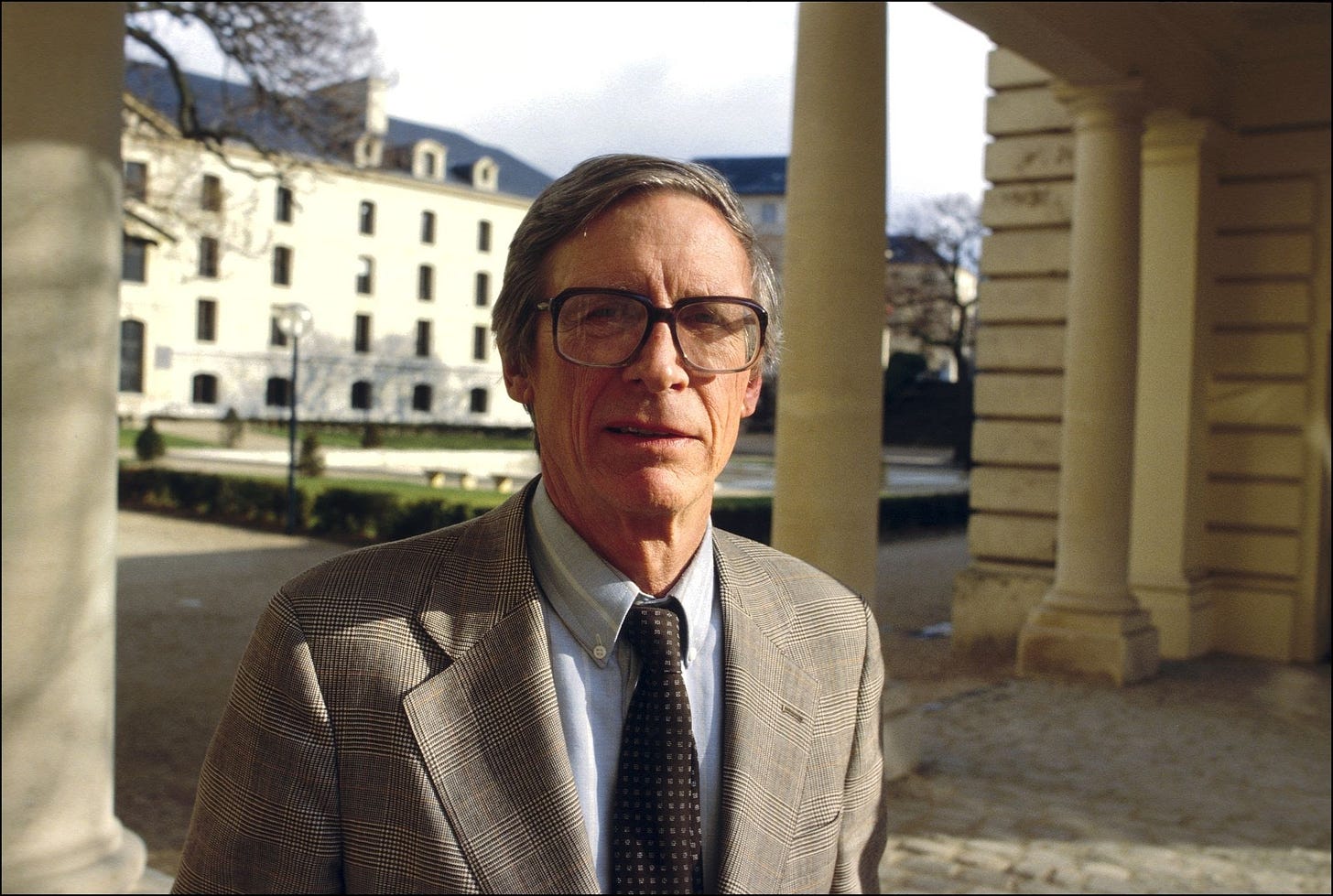Teach more Rawls
Bad abstract ideas are best countered with good ones like “justice as fairness”.
Most parents want their children’s schools to focus on things like math, science, proper writing, civics, and simple ethical concepts like The Golden Rule. They are not particularly interested in importing stuffy academic fights into the daily mental workouts of impressionable minds. It’s hard enough for kids to learn algebra, chemistry, and Federalist #10, let alone determine if subgenres of critical race theory are “real CRT” or “social justice history” or the dreaded “cultural Marxism.”
But if we’re going to start introducing abstract political concepts that challenge the liberal constitutional order into our schools, let’s at least put them up against some true gold standards of American liberalism like the concept of “justice as fairness” by John Rawls. For example, a teacher could start a civics class with one of the best thought experiments ever designed in political philosophy, Rawls’s famous “Original Position”:
Today class we’re going to try something new that requires some creativity. Your task is to design a set of rules to structure our government and society that we can all agree to as fair and impartial to everyone.
The catch is, you don’t know anything about who you are or where you came from or where you would land in this society. You could be rich or poor, black or white, strong or weak, smart or not so smart, or just a regular person.
What should the ground rules be for a society that is fair to everyone?
Okay, this exercise might put everyone to sleep. Fair enough. The teacher can spice it up with graphics or role playing. Alternatively, it might lead to some rigorous discussions carried out in a civil manner with students hopefully respecting one another as they try to determine a suitable framework for governing the country.
How should a just society be structured to be fair to everyone? Rawls’s famous two-part answer to this thought experiment became the standard definition of justice in post-War liberalism, summarized as:
All people are guaranteed the same equal rights and liberties necessary to live a good life.
Education, employment, and political opportunities are open to all people equally, and everyone should have a basic minimum of income and wealth necessary to live a decent life and any inequality should be to the benefit of the least well off.
In Rawls’s just world, people are assumed to be rational, mostly considerate of one another, and committed to figuring out some way to live together given people’s different opinions and ideas. No one can be mistreated or discriminated against based on their race, gender, or religion. People are free and equal citizens, and anyone can use their smarts and ambitions to get ahead in life—or just hang out if they choose. People own property and the state doesn’t control the economy as in a socialist state. But a strong social welfare system also exists to ensure that people don’t live in dire or hopeless economic situations that preclude meaningful progress in life. It’s western liberal democracy as we know it today.
There are plenty of valid criticisms of Rawls’s theories from the left, center, and right. That’s why nearly every graduate political science program has a course called, “Rawls and His Critics.” Detractors of Rawls’s methods and conclusions argue: It’s unrealistic for people not to know things about themselves. People are embedded in important communities and religious contexts that structure their lives. People aren’t that rational. This doesn’t deal with historical inheritances. Real freedom wouldn’t have this much government. This sounds like welfare state dependency.
These are all important points worthy of debating. At the same time, Rawls’s world of “justice as fairness” sounds like a darn good place to be—and certainly better than authoritarian alternatives or societies structured along sectarian racial or political lines.
“Liberal Egalitarianism Baby” probably won’t become a big book seller anytime soon. But Rawls’s ideals could be the basis for more civil discourse in our schools and politics, and help young people grapple better with the difficult and contentious task of maintaining a society that ensures equal dignity and rights for all.





